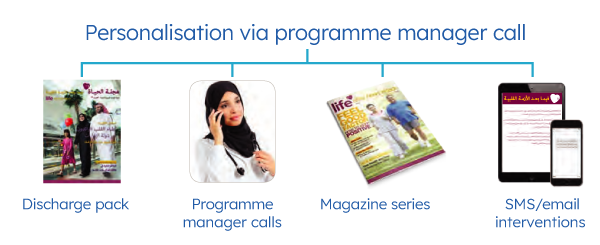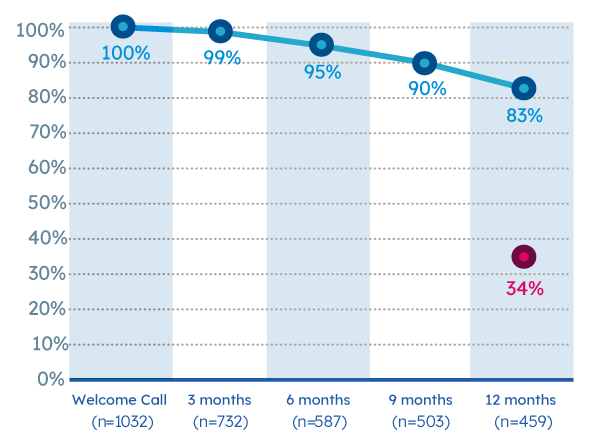Over a third of people diagnosed with acute coronary syndrome (ACS) stop taking oral antiplatelet (OAP) medication within nine months of initiation, despite potential consequences of heart
attack and death.
To address this high level of non-persistence to OAP medication and help the newly diagnosed to adjust to recommended lifestyle changes, we provided a personalized multichannel behavior change program.




